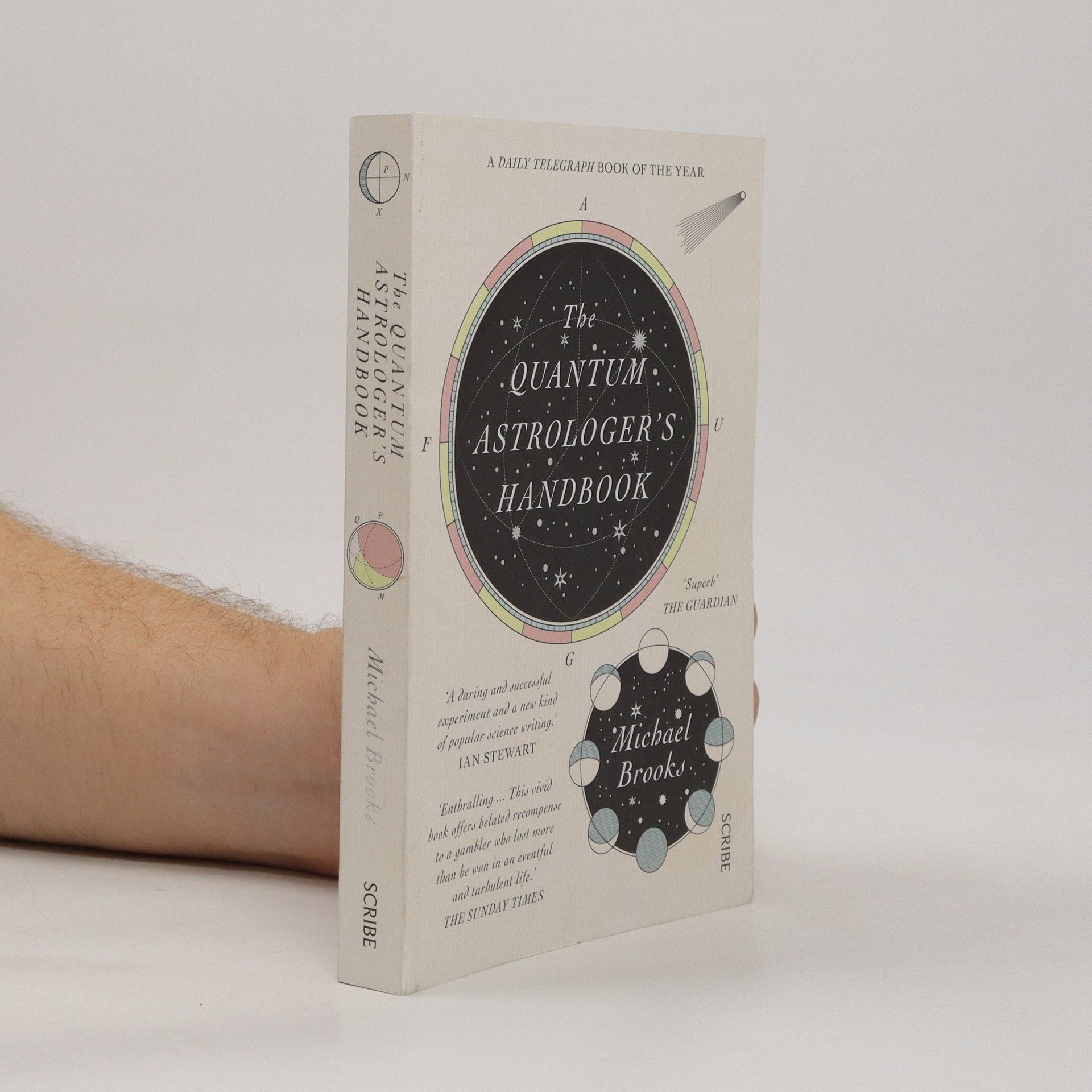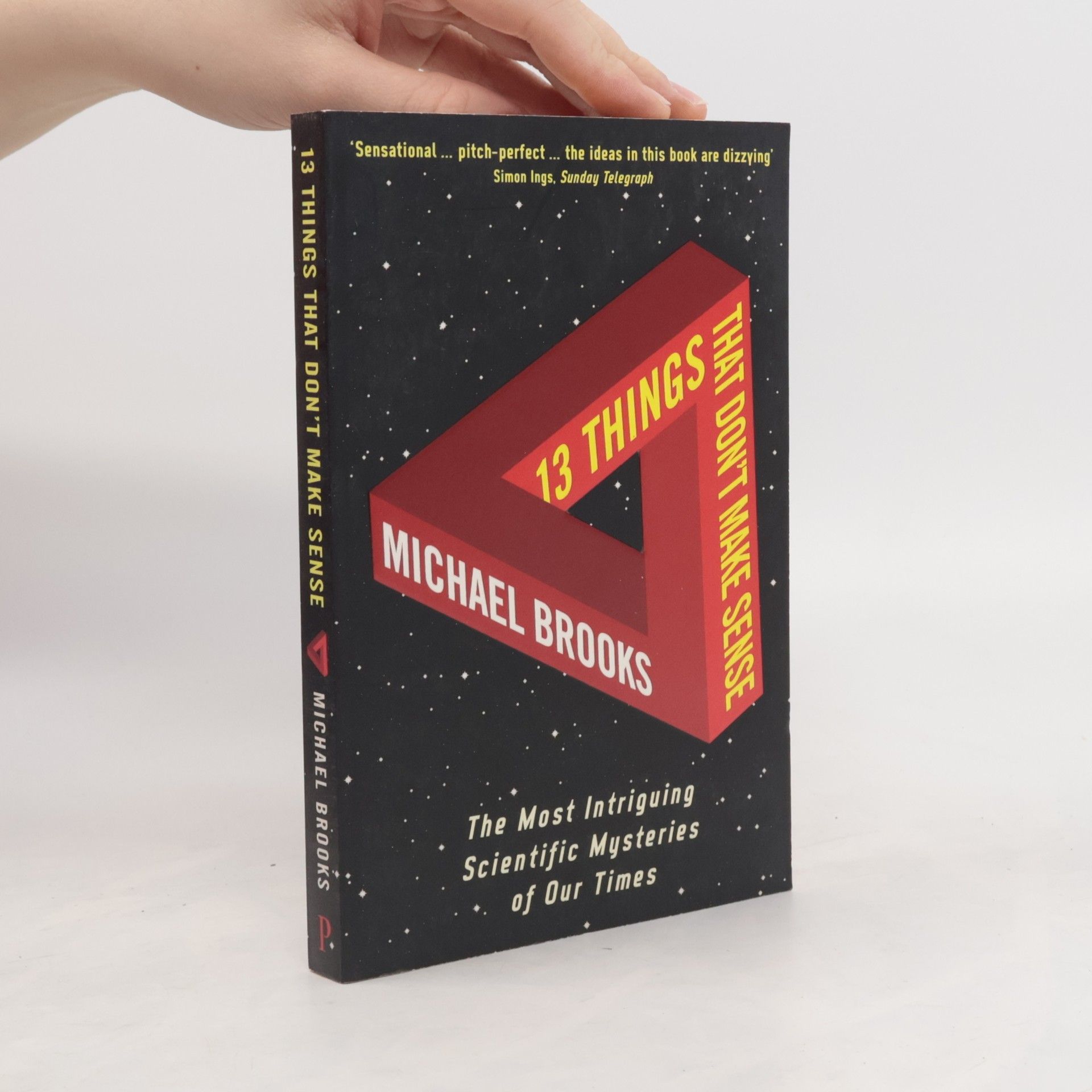Quadratic equations, Pythagoras' theorem, imaginary numbers, and pi -- you may remember studying these at school, but did anyone ever explain why? Never fear -- bestselling science writer, and your new favourite maths teacher, Michael Brooks is here to help. In The Maths That Made Us, Brooks reminds us of the wonders of numbers: how they enabled explorers to travel far across the seas and astronomers to map the heavens; how they won wars and halted the HIV epidemic; how they are responsible for the design of your home and almost everything in it, down to the smartphone in your pocket. His clear explanations of the maths that built our world, along with stories about where it came from and how it shaped human history, will engage and delight. From ancient Egyptian priests to the Apollo astronauts, and Babylonian tax collectors to juggling robots, join Brooks and his extraordinarily eccentric cast of characters in discovering how maths made us who we are today.
Michael Brooks Livres
Michael Brooks, titulaire d'un doctorat en physique quantique, est un auteur, journaliste et animateur. Consultant pour New Scientist, il écrit également régulièrement pour le New Statesman. L'écriture de Brooks explore des concepts scientifiques complexes, les présentant avec clarté et une prose captivante. Il excelle à découvrir des anecdotes fascinantes et des liens surprenants au sein de la science, offrant aux lecteurs une perspective nouvelle sur la nature de la réalité.







Against the Web
- 96pages
- 4 heures de lecture
From Michael Brooks, host of The Michael Brooks Show and co-host of the Majority Report, comes the first book to directly respond to the Intellectual Dark Web and Jordan Peterson.
Bestselling science writer Michael Brooks takes us on a fascinating journey through the history of civilisation, as he explains why maths is fundamental to our understanding of the world.1, 2, 3 … ? The untrained brain isn’t wired for maths; beyond the number 3, it just sees ‘more’. So why bother learning it at all?You might remember studying geometry, calculus, and algebra at school, but you probably didn’t realise — or weren’t taught — that these are the roots of art, architecture, government, and almost every other aspect of our civilisation. The mathematics of triangles enabled explorers to travel far across the seas and astronomers to map the heavens. Calculus won the Allies the Second World War and halted the HIV epidemic. And imaginary numbers, it turns out, are essential to the realities of twenty-first-century life.From ancient Egyptian priests to the Apollo astronauts, and Babylonian tax collectors to juggling robots, join Michael Brooks and his extraordinarily eccentric cast of characters in discovering how maths shaped the world around you.
The Art of More: How Mathematics Created Civilization
- 336pages
- 12 heures de lecture
"Michael Brooks makes clear that mathematics was one of the foundational innovations that catapulted humanity from a nomadic existence to civilization, and that it has been instrumental in every subsequent great leap of humankind--from charting the movements of celestial bodies, to navigating the globe, to tracking the dissemination of viruses. And the trailblazing mathematicians who devoted their lives to taming numbers come to life in Brooks's telling. Here are ancient Egyptian priests, Babylonian tax officials, the Apollo astronauts, the hobbyist who cracked a mapmaking puzzle that had stumped both NASA and U.S. Geological Survey, and the MIT professor who invented the infrastructure of the online world. Their stories clearly demonstrate that the invention of mathematics is every bit as important to the human species as the discovery of fire."-- Provided by publisher
The Quantum Astrologer's Handbook
- 256pages
- 9 heures de lecture
A Daily Telegraphbook of the year. This is a landmark in science writing that resurrects from the vaults of neglect the polymath Jerome Cardano, a Milanese of the sixteenth century. Who is he? A gambler and blasphemer, inventor and chancer, plagued by demons and anxieties, astrologer to kings, emperors, and popes, and the unacknowledged discoverer of the mathematical foundations of quantum physics. The Quantum Astrologer's Handbook, like Jerome, has multiple occupations: it is at once a biography, a history of science, an explanation of quantum theory, and an engrossing story which reads like the best kind of novel. It is a science book like no other about a scientist like no other.
Can we resurrect dinosaurs, Jurassic Park-style? Are we living in The Matrix's digital simulation? Do aliens with acid blood exist somewhere in the universe? Will we ever go back and visit 1955? And just why were the original Planet of the Ape movies so terrible? In Science(ish), Rick Edwards and Dr Michael Brooks confront all the questions that your favourite movies provoke. Inspired by their award-winning podcast, this popular (hopefully) science (definitely) book dedicates each chapter to a different sci-fi classic, and wittily explores the fascinating issues that arise. Covering movies from 28 Days Later to Ex Machina, this is a joyous ride through astrophysics, neuroscience, psychology, botany, artificial intelligence, evolution, and plenty more subjects you've always wanted to grasp. Now's your chance: stylishly designed and illustrated throughout, Science(ish) is the perfect gift for every curious mind.
Hollywood Wants to Kill You
- 288pages
- 11 heures de lecture
The hilarious new popular science book from the bestselling authors of the Sunday Times Book of the Year Science(ish)
Is 96 percent of the universe missing? Was the 1977 signal from outer space a transmission from an alien civilization? This book presents thirteen modern-day anomalies that may become tomorrow's breakthroughs. Spanning fields from chemistry to cosmology, psychology to physics, it captures the excitement and controversy of the scientific unknown.
Longman Wordwise Dictionary
- 722pages
- 26 heures de lecture
Libro usado en buenas condiciones, por su antiguedad podria contener señales normales de uso
Offender
- 284pages
- 10 heures de lecture
Set in a dystopian society, the narrative explores the forbidden romance between a loyal citizen and a defector. Their love defies strict laws, highlighting themes of rebellion and the struggle for personal freedom. As the protagonist grapples with the consequences of their feelings, the story delves into the risks one is willing to take for love and the fight against oppressive systems. The tension between duty and desire drives the plot, creating a compelling tale of courage and sacrifice.

